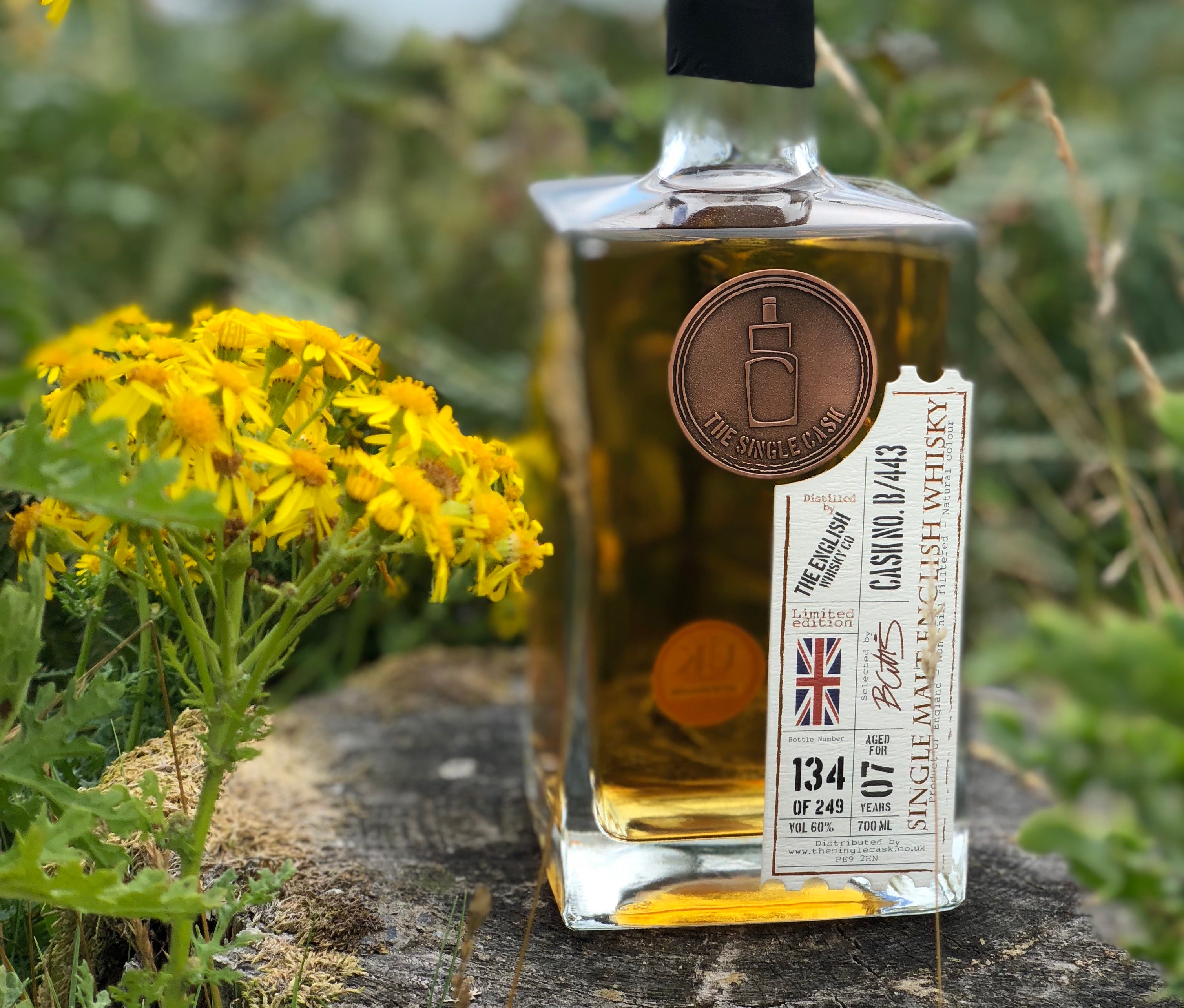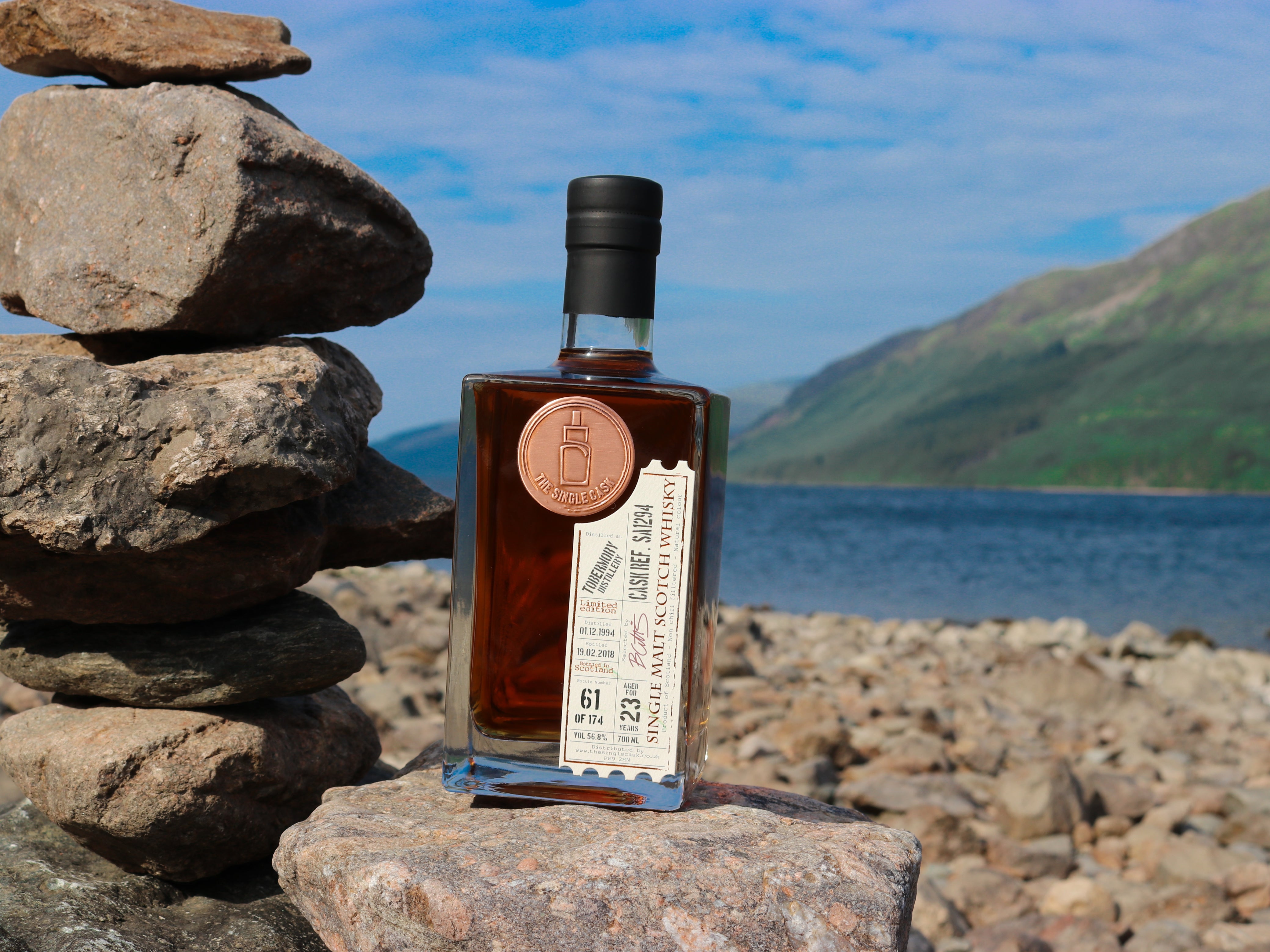
Celebrating St. George's Day with English whisky
by Sorren Krebs
There is an interesting conception that only Scotland can produce good whisky!
Whisky is being produced all around the world by countries including Sweden, Germany, India, Taiwan and even England! But ask most whisky drinkers to name those countries and England will probably be one of the last to be named, why ?
Lets look at some facts; as a country we are not known for producing whisky and don't have a history of doing so, but are you sure of that? England was producing whisky in the late 1800's with the last known distillery (Lea Valley Distillery, Stratford, London ) closing in 1905. The distillery was founded by Mr. E. A. Brock along with Mr. Geo. Phillips and as was typical of the time built beside a canal for the ease of transport, which also included the purchasing and delivery of the barley from the maltings located at Ware, Hertfordshire.
What we do know today though is that English whisky is thriving and when The English Whisky Company ( St Georges Distillery ) opened its doors back in 2006 it was seen as a bold move by James Nelstrop. A 100 years had passed from the last remaining English whisky distillery closing to the opening of the distillery in Norfolk. Many may think it a strange decision from James, but his love of whisky and a farming background were probably the perfect match for such a bold move.
But why open a distillery in England? Well let’s look at some of the possible reasons; Firstly, why not!
- Just because there are not other distilleries operating within England does not mean it is the wrong thing to do, there is always a first!! Secondly, barley is shipped to Scotland from England on a regular basis. The barley grown in England is as good as any grown for the production of whisky in Scotland, why do you think so much of the barley used in the production of "Scotch" is made from English barley? So does it not seem logical to make whisky where the barley is in abundance and save some costs in doing so? Finally as a proud English man why shouldn't he build a whisky distillery in the country he belongs to and on family owned land where some of the finest barley in England is grown?
The decision was made, applications were submitted in 2005 and granted in 2006, English whisky was again a thing. The distillery was built and spirit flowed in December 2006 and here we have the first thing in common with "Scotch"; several distilleries have begun producing whisky in the month of December. So England is once again producing whisky but that is the easy part, convincing people to drink whisky produced outside of Scotland, Ireland and America is the hard part! The good people north of the border were always going to take some convincing that whisky could be produced south of the lowlands. Scotland is a proud country and defends it’s long history producing whisky. They do battle on a regular basis on the topic of who either produces the best whisky or who started producing whisky first. To add whisky produced in England to the conversation, well it still produces a horrific look of distaste on many a face.
That said English whisky is being accepted more and more within the industry as a liquid to be appreciated and not just a gimmick! Whisky drinkers around the world are certainly more accepting of a whisky produced outside of the big two ( Scotland and Ireland ) which is a more obvious statement as they are becoming far more accustomed to drinking world whiskies and not just "Scotch". What needs to be understood is that English whisky is not, nor will it ever be a replacement to "Scotch". English whisky is a whisky produced in England, it is a liquid produced generally in the same way as our counterparts north of the border, with the same dedication and 3 simple ingredients - Barley, Yeast and Water. Add to this pride and time and there is no difference.
What we do know is that there will eventually be differences as the category of English whisky grows and more distilleries come on line. There will also be the need to set boundaries and guidelines as has already been discussed by the majority of those producing whisky within the English sector.
What is also clear is that English whisky will be diverse. It will push the boundaries of whisky production and will help to set standards around the world and eventually it might help to push whisky produced in Scotland to new limits.
As we examine the distilleries within this sector we can already see distilleries forging a path in their own unique ways; still sizes are very different, shapes too. Styles produced will be diverse and each and every distillery will have its own style and that in itself will help to teach the other distilleries around them new ways and innovations for producing whisky.
Cooper king distillery which is nestled in the countryside of Yorkshire have adopted a Tasmanian style approach to producing their own distinct whisky. Their still was shipped over from Tasmania which is a break from tradition. Liquid will be matured in smaller casks coopered to their specifications.
Bimber distillery located on an industrial site in the heart of London produces whisky with a Polish heritage. A very small still which once again is unique to them and is direct fired.
The Cotswolds distillery also have their own way of producing whisky and have adopted the locally grown and produced concept which is fast becoming a very important factor to many, with transparency and even “Terroir” becoming something that will distinguish your distillery and product from the others.
Each distillery will have its own story and eventually history. What I do think, is English whisky is here to stay.
It is only going to grow and as long as the market is there, whisky produced from outside of Scotland will only become more popular. It will continue to set new boundaries and will help to innovate an industry that has stood still for nearly a century.
As an industry we should not claim we are better, we can’t claim we are the oldest, we won’t claim we are superior but we will and we should be proud enough to stand side by side with any nation and proclaim " We make whisky and we make it as good as anyone else can." All I ask of anybody is to try an English whisky. It does not matter if that whisky is produced by the English Whisky Company or by Cotswolds, The Lakes, Bimber or any other English distillery as long as you try some, then hopefully you will appreciate we all make whisky, we all make good whisky and that will hopefully inspire you to try one, two or eventually all the English whiskies being produced.
It is truly a very exciting time for English whisky scene. It is the dawn of a new era, it is the birth of a new industry sector and it is beginning to thrive. Make no mistake, the English Whisky Company are the Grandfathers of English whisky and we will continue to learn. We will continue to produce the best whisky we can, we will make and learn from mistakes and this will help us and others to shape an industry that will be proud to shout about our products.
Don't miss the boat, English whisky is a thing, it’s not a myth and it will continue to grow...



Leave a comment
This site is protected by reCAPTCHA and the Google Privacy Policy and Terms of Service apply.